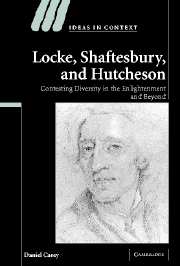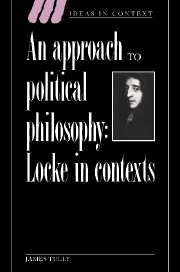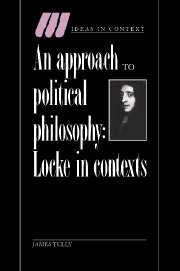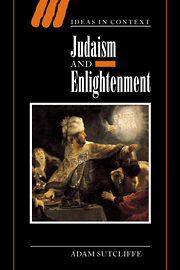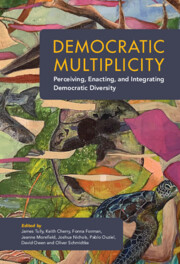Locke, Shaftesbury, and Hutcheson
Are human beings linked by a common nature, one that makes them see the world in the same moral way? Or are they fragmented by different cultural practices and values? These fundamental questions of our existence were debated in the Enlightenment by Locke, Shaftesbury, and Hutcheson. Daniel Carey provides an important new historical perspective on their discussion. At the same time, he explores the relationship between these founding arguments and contemporary disputes over cultural diversity and multiculturalism. Our own conflicting positions today reflect long-standing differences that emerged during the Enlightenment.
- The first major study of diversity in the English, Irish, and Scottish Enlightenments
- Important historical perspective on major contemporary debates about multiculturalism
- John Locke remains a hugely important figure in the history of ideas
Reviews & endorsements
"As an attempt to recover the differences among Locke, Shaftsbury, and Hutcheson and to consider the prospects for accommodation, Carey’s book succeeds. He provides a lucid reading of the Enlighteners and, in so doing, reminds us that the Enlightenment did not usher in a totalitarian project."
Eduardo Velasquez, Washington and Lee University, Perspectives on Politics
"Carey’s book is bursting with interesting ideas and is an excellent addition to intellectual history and to the literature on all three of its major figures."
Aaron Garrett, Boston University, Eighteenth-Century Scotland
"Carey's use of correspondence and unpublished manuscripts from the early modern periods adds to the value of his study, which as a whole contains a wealth of information and ideas. All this is to Carey's great credit."
Thomas Mautner, Ideas, Aesthetics and Inquiries
"Locke, Shaftesbury, and Hutcheson is...an important book, not least for anyone interested in the origins of the Scottish Enlightenment. It is well-written, and provides an especially clear exposition of the arguments found in the key texts. It sheds new light on Hutcheson’s English and Irish influences. It also suggests that the problem of diversity, once posed, could not readily be – in fact, still has not been – convincingly resolved. As a result, we still do not know what human nature is, but remain beguiled by the possibility that it might exist. In an increasingly multicultural world, the issues with which the British philosophers of the early Enlightenment wrestled continue to perplex."
The Scottish Historical Review
"[An] indispensable work of intellectual history...elegant and persuasive...a masterful book."
Adam Potkay, The Scriblerian
Product details
February 2006Adobe eBook Reader
9780511133619
0 pages
0kg
This ISBN is for an eBook version which is distributed on our behalf by a third party.
Table of Contents
- Introduction
- 1. Locke, diversity, and the natural history of man
- 2. The uses of diversity: Locke's reply to Stoicism
- 3. Locke's anthropology: travel, innateness, and the exercise of reason
- 4. Contesting diversity: Shaftesbury's Reply to Locke
- 5. Method, moral sense, and the problem of diversity: Francis Hutcheson and the Scottish Enlightenment
- 6. Conclusion: the future of diversity
- Bibliography
- Index.

